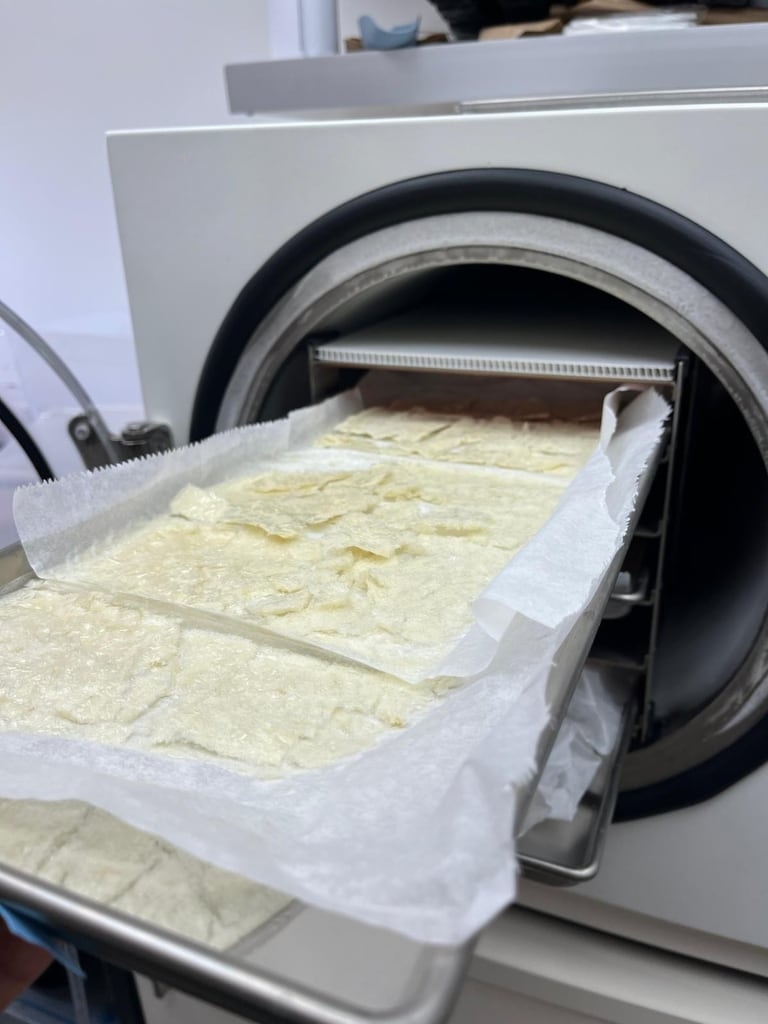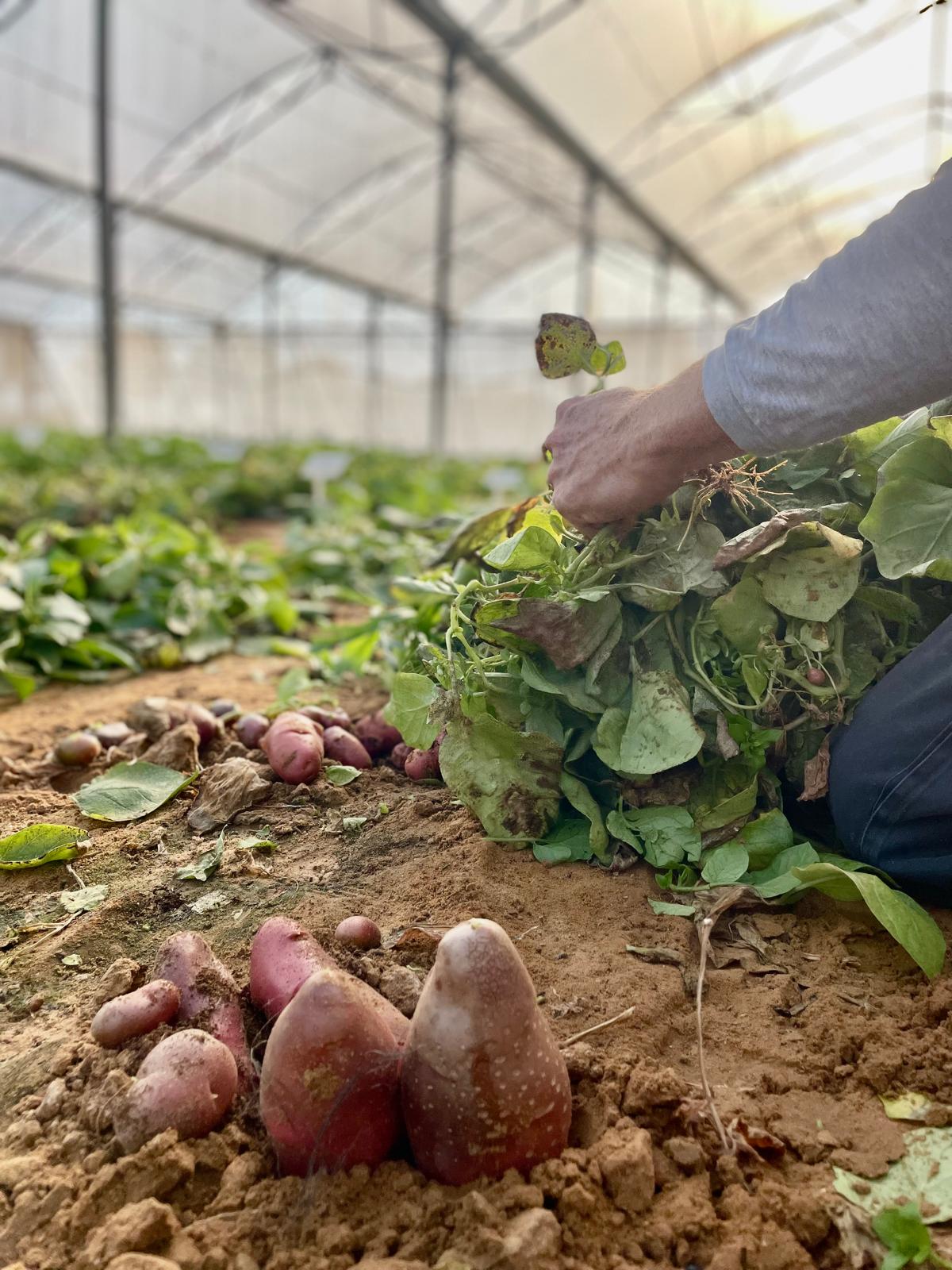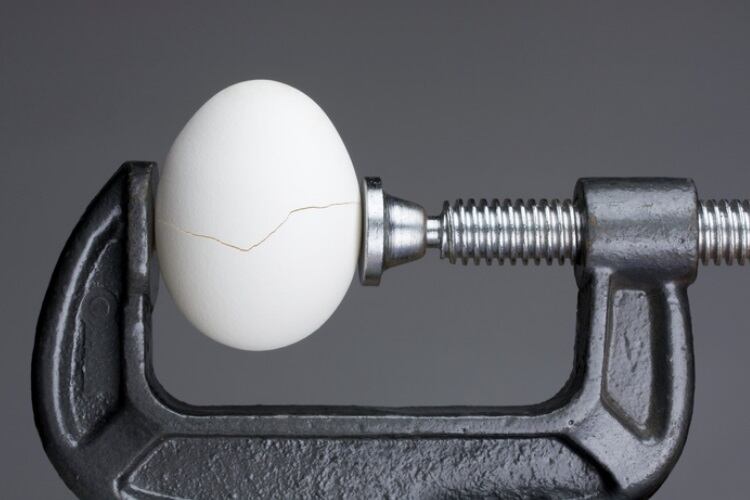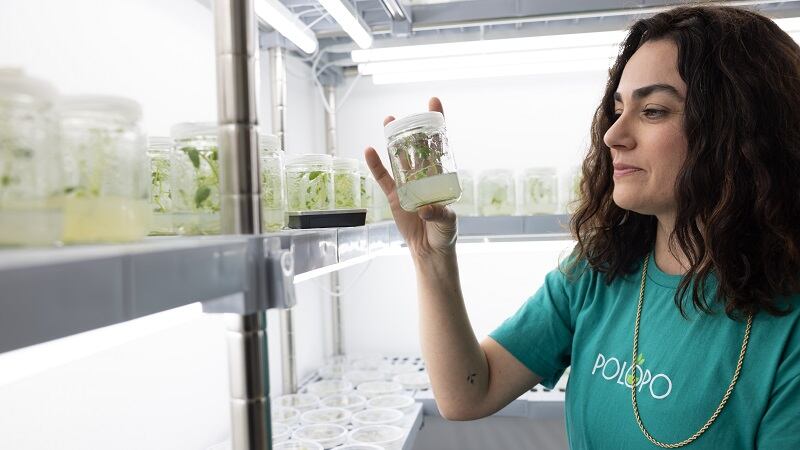Israeli molecular farm startup Polopo is scaling its first sample batch of patatin (potato protein) from genetically modified potatoes to meet the global demand for egg replacements and meat and dairy alternatives that enhance satiety and nutrition without compromising taste.
As protein’s pervasiveness continues across food and beverage formulations, potatoes serve as “great protein machine producers,” explained Ido Eliashar, vice president of business development for Polopo.
He explained that while conventional potatoes contain a nominal amount of patatin protein naturally, Polopo inserts a DNA sequence into potato plants that “teach” them to produce patatin in higher concentrations. It uses this same method to “teach” potato plants to produce the egg white protein ovalbumin. In both cases, as the plants grow in the soil, they produce within the tuber the desired proteins, which are extracted and dehydrated as a powder after harvest, the company adds.
Through Polopo’s proprietary platform Super AA, which turns each potato tuber into a micro protein factory, the potatoes produce enough patatin protein to warrant commercialization, Eliashar explained.
The company’s field cultivation trial resulted in approximately five tons of patatin-concentrated potatoes. Currently, Polopo’s potato varietals are not publicly disclosed.
How do GMO potatoes yield non-GMO protein?
While the potatoes are genetically engineered, the patatin is separated from the genetic material, resulting in a non-GMO protein powder, Eliashar said.
Last year, another Israeli startup Finally Foods explored the role of protein production via molecular farming by developing an animal-free casein for dairy products.

“The most important thing in the genetics that we do is to keep the plant as it normally grows. We want to keep potatoes, potatoes” and have them “more efficient in terms of accumulation and production of proteins in the tubers, in the part we eat,” Eliashar explained.
He continued, “We are actually teaching the plants how to do it without harming any natural systems of the plant to grow it as any other potato.”
The final powdered non-GMO protein contributes to more than 80% of the finished product’s protein content, Eliashar said.
He added Polopo’s protein production method can cut costs for its customers by more than 50%.
Exploring bakery applications with CSM Ingredients
The company’s new and larger-scale lab equipment can supply hundreds of grams per month of its protein powders from transgenic potato plants, according to Eliashar.
While Polopo’s protein powder exhibits versatility across food formulations, the company is starting with baked goods by scaling its first batch of samples for global food ingredient supplier CSM Ingredients.
Polopo’s transition from ingredient development to sample batches started when it was selected to join the Generate startup incubator run by CSM and HiFood, a producer of plant-based and value-add ingredients from Italy.
“The main goal of the program is to work together to get the product out to the markets together. So, we have our knowledge, our technology, supported by CSM’s team and resources and production sites,” Eliashar elaborated.
Before even reaching formula development with CSM, Polopo prioritized perfecting the technology thanks to the startup’s inhouse food scientist and analytical capabilities, he said.
“Our thesis is first to become the expert in our product before we can share it outside with the world. We want to know our product the best so we can support our clients the best in their new product development,” he explained.
As Polopo builds its supply and value chain in the US, the company will continue developing formulation and product development partnerships. This could include seed producers, growers and processors in the potato industry, Eliashar added.
Funding and regulatory plans
Currently, Polopos is fundraising its seed round after securing $2.3 million in a 2022 pre-seed round to advance its commercial efforts and build a supply chain and production. This allowed it to increase sample sizes and develop commercial agreements.
In order to grow its potatoes in the US, the company is awaiting approval from USDA, in addition to exploring GRAS (generally recognized as safe) affirmation once the company is able to scale larger quantities.



